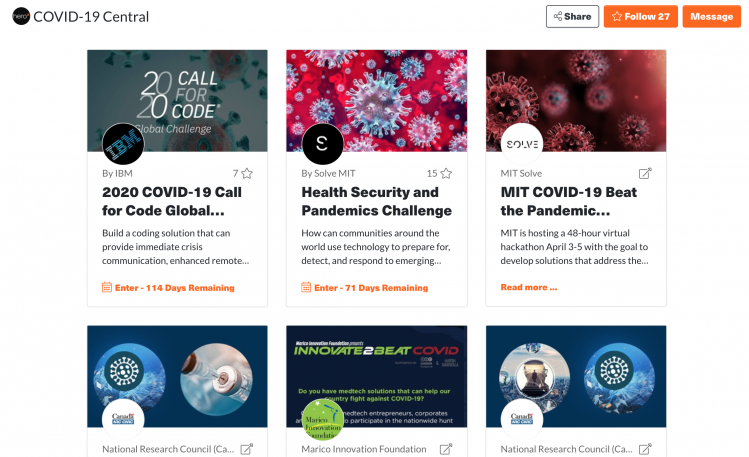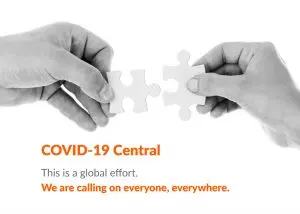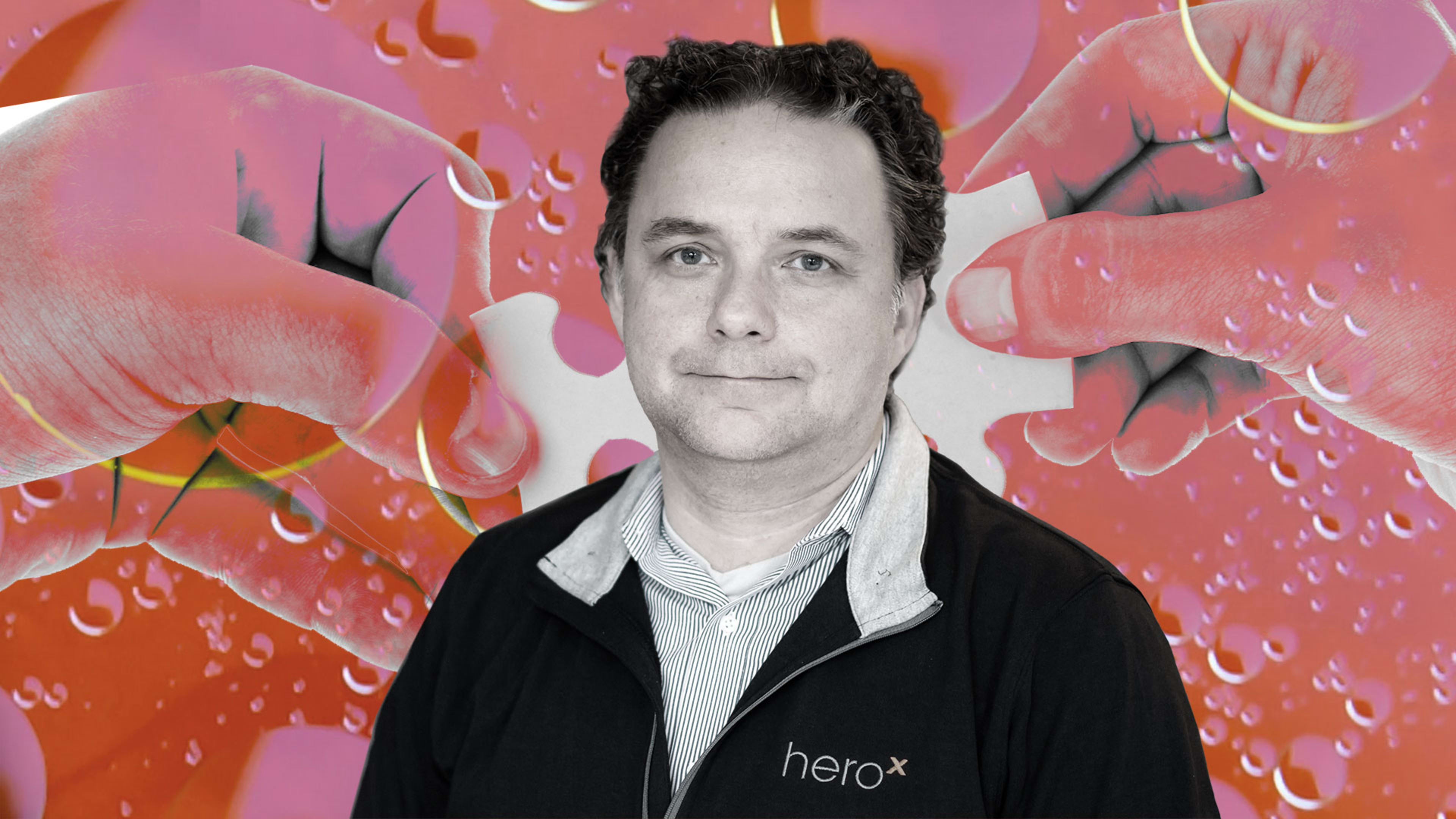Global alarm and frightening stories of healthcare workers on the front lines of the COVID-19 battle have millions on the sidelines wanting to help but not sure where to look or apply their skill sets.
To allay that confusion, XPrize spinoff HeroX—which allows anyone to create a challenge to a problem that might lead to breakthrough innovations—is pooling all COVID-related challenges from its own and other crowdsourcing platforms into one place. The resource hub, COVID-19 Central, launched April 7 to connect innovators with opportunities to develop life-saving technologies during this global crisis.
“There’s a huge amount of cognitive horsepower out there. But with the economy on lockdown, a lot of people feel helpless,” says HeroX CEO Christian Cotichini. “There are incredibly talented developers, data scientists, and creative thinkers, and they’re sitting on their couches streaming Netflix and watching CNN, and don’t think that they can do anything. So we want to help them get the word out, increase their reach, and connect them to the right communities.”

The hub launched with 15 challenges and is slowly adding more from a funnel of nearly 100 projects in various stages of development. They include MIT’s Beat the Pandemic Hackathon, the State of New York’s Tech SWAT Team, and the Code Life Ventilator Challenge. Next week, the site will begin featuring webinars on how to use crowdsourcing to host your own COVID challenge.
For example, the Ventilator Challenge—which offers a $142,527 ($200,000 CAD) prize for a low-cost, easy-to-build ventilator design—originally listed on another crowdfunding site, Agorize, but reposted on HeroX upon referral from a person who spotted it on LinkedIn. Reza Farivar, a neuroscientist with the Research Institute of the McGill University Health Centre, a challenge sponsor with the Montreal General Hospital Foundation, organized it over four days in mid-March after watching Italy’s coronavirus death rate soar from its ventilator shortage.

After receiving 153 global submissions, they tasked a small group of semifinalists with submitting prototypes by next week. “It’s been way bigger than anybody imagined,” adds Farivar. “A lot of people want to connect with something that seems to be helping alleviate the concerns of COVID. The hope is important, especially in such dark times.”
There is no fee to list COVID challenges or projects on the COVID-19 Central page, including those already on other platforms, and discounted fees for initiating coronavirus-related challenges on the HeroX platform. The company also reviews the details of each project and helps hone them into more effective challenges. There is no fee to participate in a challenge.
Unlike traditional crowdsourcing projects, not all COVID challenges have a monetary incentive. “The pandemic has brought forth a lot of goodwill from the community,” says Cotichini. “A lot of these projects are just being driven by the intrinsic desire to help, with many companies offering their products free or extending their trials.”
HeroX was cofounded in 2013 by Cotichini, a Vancouver-based serial entrepreneur, XPrize founder Peter Diamandis, and former XPrize program manager Emily Fowler as a modest, democratic alternative to XPrize’s multi-million-dollar, curated challenges. “XPrize is like the HBO of crowdsourcing and HeroX is like YouTube,” says Cotichini. Since then, HeroX’s global community has launched over $30 million worth of crowdsourcing projects and solved complex problems for such organizations as NASA, Novartis, and Boeing.
HeroX is coordinating efforts with the XPrize Pandemic Alliance while focusing most of its 12-person virtual staff on the COVID-19 projects. The move is an acceleration of a previously longer-term goal of using crowdsourcing to respond to crises and quick ramp-ups for emergencies.
“We’ve created this incredible ecosystem over the last six years and we want to make that available to anybody,” says Cotichini. “We’re on the peak of the shock phase of this pandemic, but there’s a new normal on the other side of this that is going to persist for 12 to 18 months minimum. And the developing world is probably going to be struggling with this for years. So we’re looking at the long cycle, and how we can minimize the negative consequences of this pandemic.”
Recognize your brand’s excellence by applying to this year’s Brands That Matter Awards before the early-rate deadline, May 3.
